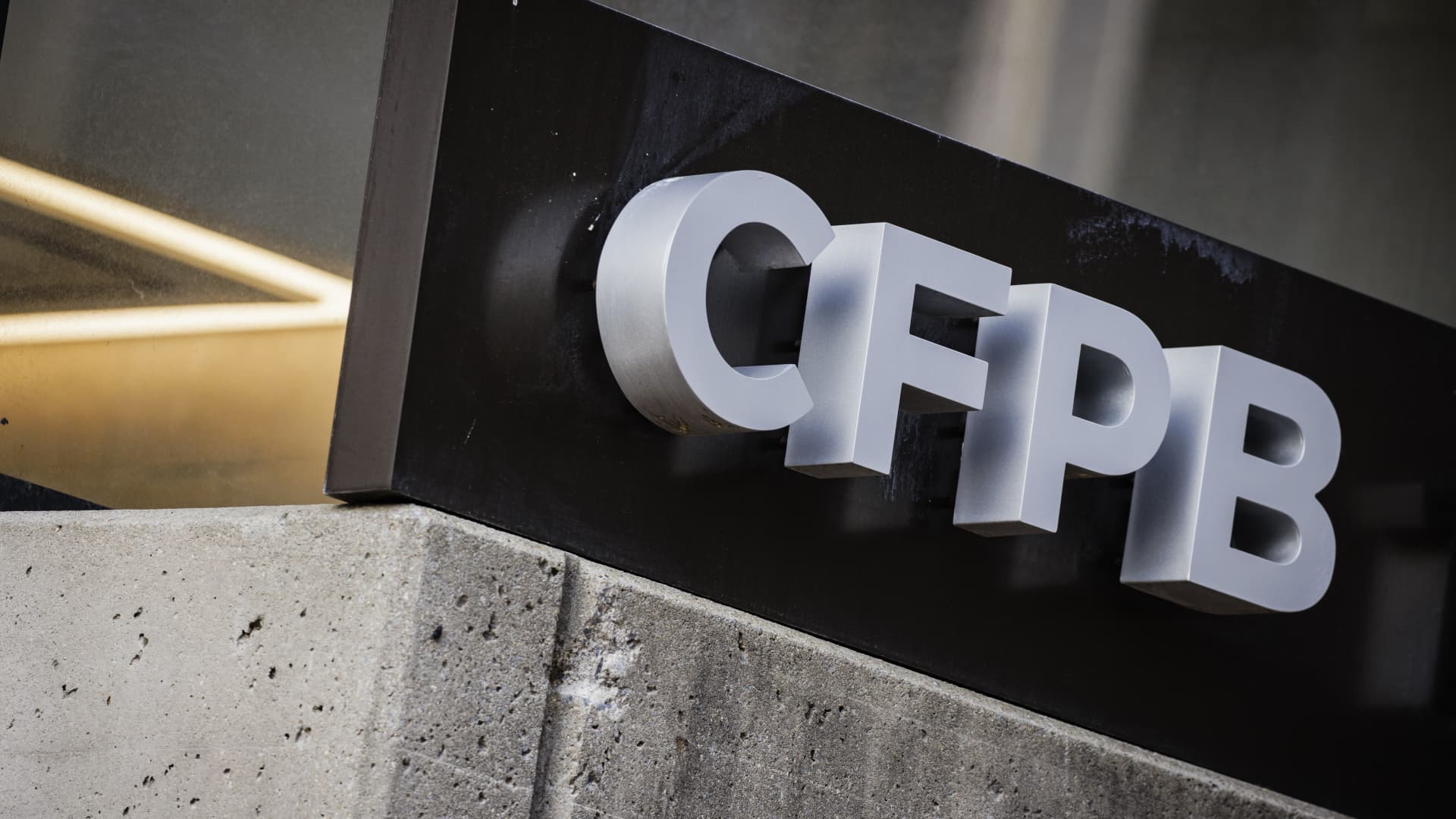White House plans to halt the work of the Consumer Financial Protection Bureau may prove beneficial for bank stocks — but there are also uncertainties to keep in mind, according to Raymond James. CFPB Operations Chief Adam Martinez told employees in a Sunday memo to work remotely this week as the headquarters would be closed. That came one day after Russell Vought, the director of the Office of Management and Budget and the CFPB’s acting head, told staff in an email to stop most of the bureau’s activities . Last week, Tesla CEO Elon Musk, leader of the Trump Administration’s advisory group on government efficiency, posted “CFPB RIP” on X, the social media platform he owns. Musk had previously called for the bureau to be shuttered. “This is the most significant of bank deregulatory actions to date,” said Ed Mills, Washington policy analyst at Raymond James. “The longer it is implemented, it will reduce compliance and regulatory costs for the industry.” How curbing the CFPB helps banks There are several ways in which throttling CFPB can ease regulatory pressure on financial firms, according to Mills. Most immediately, it suspends any pending rules the agency was considered. They includes the push for “junk fee” reforms, including oversight of credit card late fees and overdraft charges at banks. The “open banking” rule, which aimed to simplify consumers’ ability to switch banks, is also on hold now. Mills said that a freeze is a hit to financial technology companies, which were expected to benefit from the proposed policy. Fintech firms will benefit in other ways, however. Mills said fintech companies are still expected to gain from a rollback in CFPB regulations, given the agency’s push for more of a say in financial services generally than in rules tied specifically to banks. A reduced role for the CFPB, created by Congress in 2010 under the Dodd-Frank Wall Street Reform and Consumer Protection Act in reaction to the 2007-2008 financial crisis , may also help encourage mrgers and acquisitions in the sector, Mills said. The CFPB has been a “hurdle” to deals, which can now be expected to see shorter timelines and higher approval rates from the new White House. The SPDR S & P Bank ETF (KBE) slid about 0.8% in early Monday trading. But the fund has climbed nearly 6% since the start of 2025, outperforming the rest of the stock market. KBE .SPX YTD mountain KBE vs. S & P 500, year to date The path ahead Still, Mills cautioned that the longer-term impact of restraining the CFPB is unclear. That will depend on the outcome of court challenges to the change. Already, the National Treasury Employees Union, representing CFPB employees, filed two lawsuits against Vought. Mills also noted that the enforcement of rules already in place now shifts to state attorneys general and private parties that can sue when they regard a policy as violated. — CNBC’s Hugh Son contributed to this report.





